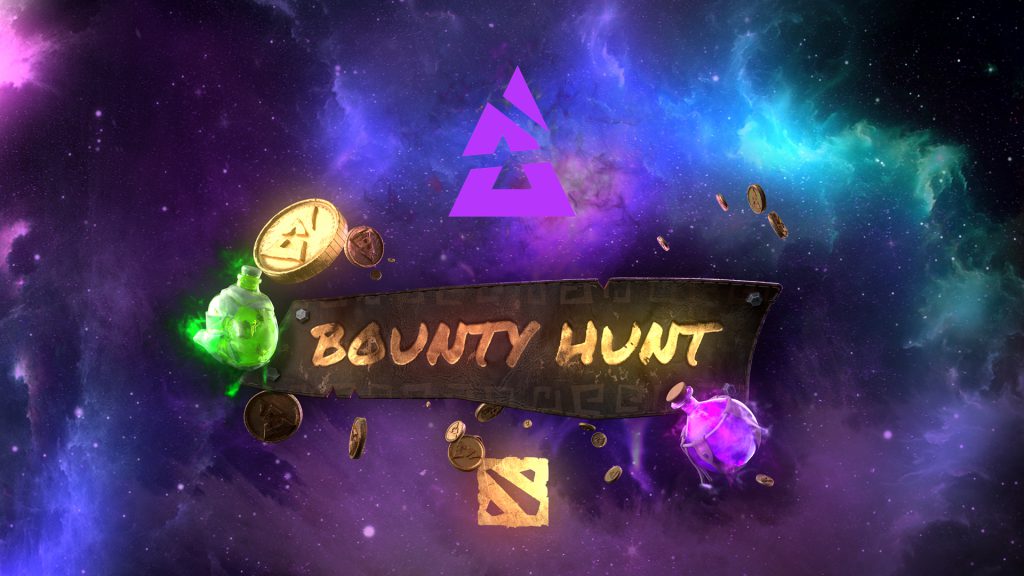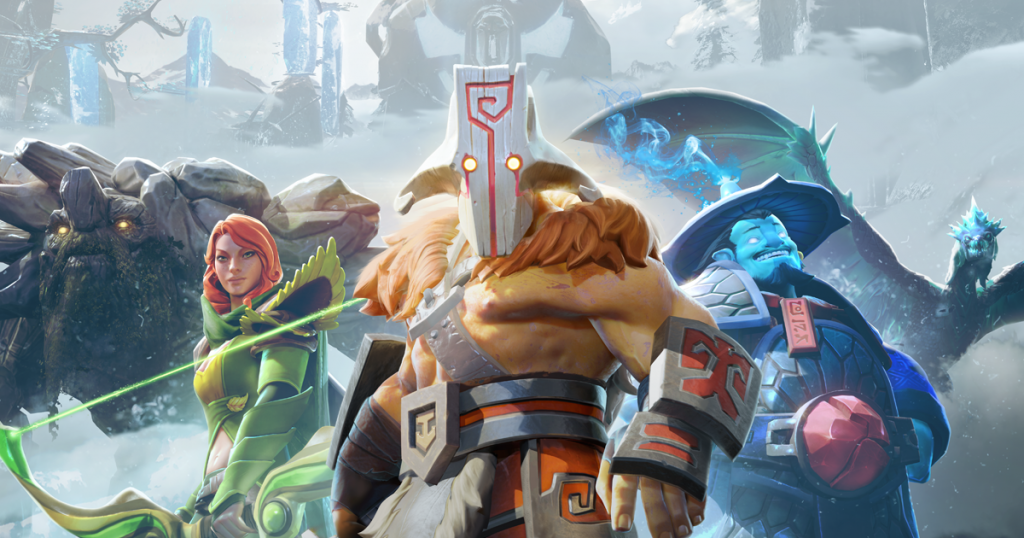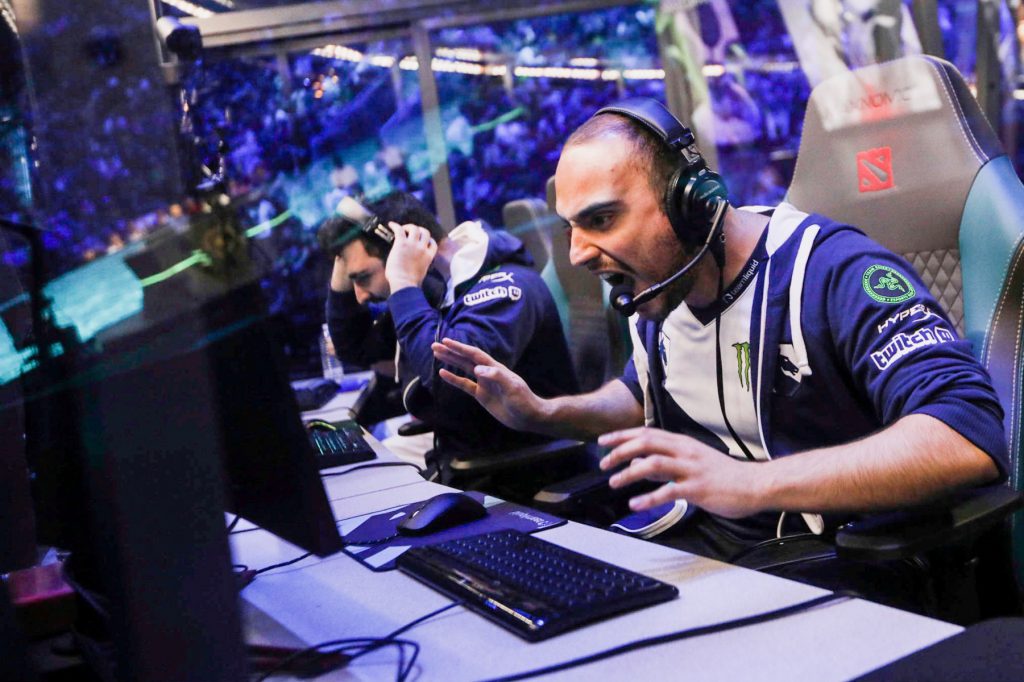Tournament organiser BLAST has announced its first venture into Dota 2 with Bounty Hunt – an online tournament with a $145,000 (£116,049) dynamic prize pool for players and a $5,000 (£4,001) cash prize for audience participants.
BLAST Bounty Hunt will be held from June 9-13th and broadcast over BLAST’s newly created Dota 2 Twitch and YouTube channels. Pro teams from across the world will compete in over 32 hours of competitive gameplay over five consecutive days, playing best-of-threes until the Championship best-of-five. The prize pool will shift with every competition and additional bounties can be won along the way, continually changing the stakes.
Teams participating include OG Esports, Team Secret, Nigma, Ninjas in Pyjamas, Alliance, and Team Liquid.
This first online tournament may be BLAST’s way of dipping its toe into the Dota 2 waters, but any caution should not be mistaken for timidness. As BLAST Director of Product and Experience Nicolas Estrup told Esports Insider, they intend to “ruffle some feathers.”

BLAST Bounty Hunt: A new chapter
“When we got to a successful place with Counter-Strike, we felt it was time to begin looking for what was next for us,” said Estrup.
BLAST is a relatively small company despite its global reach, he noted, so adding a new game required that everyone be ready to take on the challenge. That moment arrived several months ago but choosing the “next big thing” for the company turned out to be anything but simple.
“It’s hard not to instantly gravitate toward some of the new games popping up that may seem ‘spur of the moment’ exciting but [Counter-Strike taught us] to look at games with heritage in esports – deep lore that we can work with on a storytelling level in terms of the player, team, and game itself.”
RELATED: Coping with coronavirus: BLAST on the pivot from stadium to stream
BLAST didn’t want another shooter game and looked to the opposite end of the genre spectrum. Dota 2, a MOBA with an existing global fan base and advanced mechanics, became the challenge Estrup and his team was looking for.
“Dota has so much potential in terms of how you broadcast it and how you make entertaining arena events at some point in the future,” Estrup said. “There’s just a ton of opportunities to come in and put our mark on how we think Dota could and/or should be broadcast and enjoyed.”

(Carefully) Changing the Game
BLAST made the conscious decision not to “copy and paste” its tournament format from Counter-Strike. One noticeable difference from BLAST’s usual broadcasts is the way that audiences will view gameplay. Unlike Counter-Strike, which has been dissected and presented in a custom visual format, Dota 2 will be presented in its original form to viewers.
“We don’t want to come in and disrupt the way you view Dota on the screen – we need to be much more comfortable in the game [first],” said Estrup. “That’s why for us, the big part we wanted to change from the get-go was the prize pool.”
The dynamic prize pool and a fan prediction game are unique to BLAST Bounty Hunt and were created in collaboration with the participating teams.
Here’s how the dynamic prize pool works:
- Each team starts with $15,000 (£12,000) and 40 percent of their bounty goes up for grabs every time they compete against another in the best of three.
- Teams will seed each other and play in double elimination brackets to reach the final two.
- Seeds 3-6 will playoff with the winners, moving on to play seeds 1-2, where both top seeds start with $20,000 (£16,002) for a place in the final.
Additional bounties:
Additional bounties of $45,000 (£36,038) can be won along the way through challenges that viewers can vote on through BLAST social media channels. As an extra incentive, one voter’s nickname will be used as part of each respective bounty’s name.
The dynamic prize pool allows for higher and ever-changing stakes. Should a team win BLAST Bounty Hunt undefeated, for example, they could walk away with up to $51,120 (£40,893) plus any additional bounties they win, up to $96,000 (£76,870).
RELATED: BLAST announces online tournament BLAST Rising

Fan Prediction Game
$5,000 (£4,001) from the prize pool will be open for fans at home to win the Fan Prediction Game. Viewers will be able to predict the winners of each match, the number of bounties collected, and a number of other twists and turns throughout the tournament.
Looking Ahead
“We [thought we could] elevate parts of the [Dota 2] space while keeping the focus close to the heart of the core community,” said Estrup. “We’re trying to push some boundaries and in essence, help everything grow from the Dota 2 community including the viewership and business as a whole – not just our own, but everyone in the ecosystem.”
The hope is, of course, to bring BLAST Bounty Hunt to arenas. But for now, the event will fit “snugly” between two weeks of Counter-Strike in order to utilize all the broadcast power they have, Estrup notes.
BLAST Bounty Hunt wasn’t made to replace, or even significantly compete with The International – which has been postponed due to the coronavirus outbreak. Rather, he said, they want to “breathe fresh air” into the Dota 2 competitive scene overall.
“It would make no sense for us to come in and think that we should throw a million dollars at a tournament and try to do a big, extravagant event,” said Estrup, noting that focusing solely on one giant tournament (i.e. The International) may be harmful to the Dota 2 ecosystem rather than a benefit.
Counter-Strike is a prime example of a thriving, albeit scattered global esports ecosystem that offers variety to fans in terms of skill and scale.
“You [can] create an event so massive that it almost makes the other events insignificant – that’s why we definitely take these new approaches, thinking about the game community and how money can be distributed,” he said. “This could be a positive turn to make more tournaments relevant that don’t boast, say, a $20+ million prize pool.”
[maxbutton id=”11″ ]
